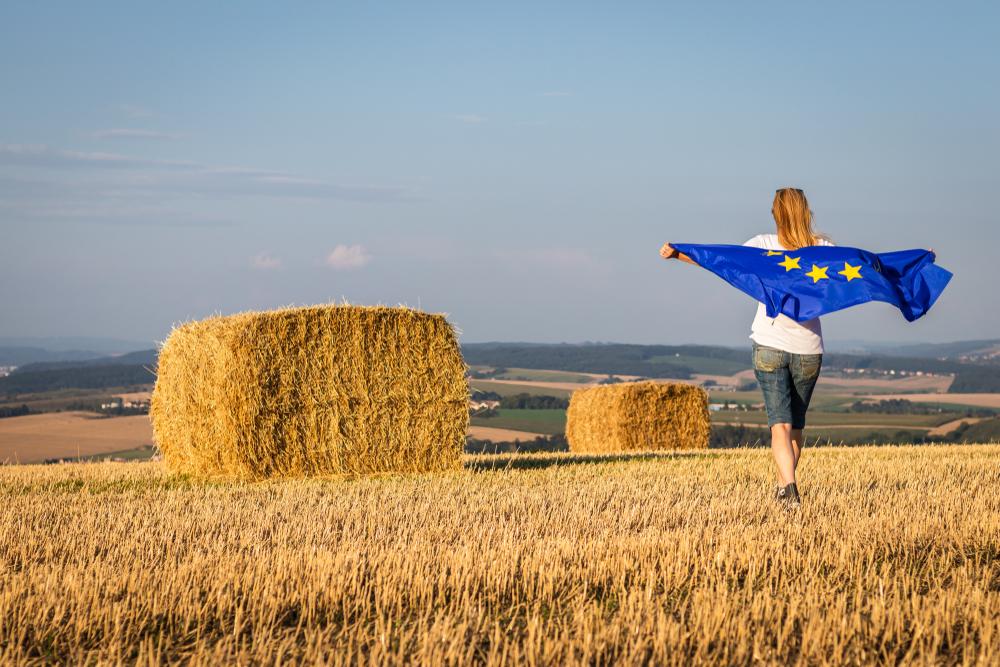The European Commission has launched the ambitious Generation Renewal Strategy for Agriculture, a comprehensive roadmap aimed at revitalizing European agriculture and attracting a new wave of young farmers.
The initiative aims to double the number of young farmers in the EU by 2040, aiming for a share of around 24% of all agricultural producers in Europe.
The move comes amid growing concerns that Europe’s agricultural workforce is rapidly aging. The average farmer in the EU is 57 years old, and only 12% are under 40.
Without generational change, Europe’s long-term food security, rural vitality and environmental sustainability could be at risk, experts warn.
Christoph Hansen, EU Commissioner for Agriculture and Food, explained: “The future of our food security and rural communities depends on the next generation.
“We are making support for young new farmers a political priority. We want all young people who dream of farming to see a real path forward with fewer obstacles and stronger support.
“This is why, above all, we are calling on all Member States to act with concrete national strategies and real investments.
“This is about breaking down barriers and creating opportunities to ensure agriculture remains a viable and attractive career option.”
Agriculture sector at a crossroads
European agriculture is at a turning point. The population of young people in rural areas is shrinking, and with it the number of next-generation farmers.
Between 2013 and 2019, the number of young people aged 15-24 living in rural areas of the EU fell from 3.6 million to 1.9 million. This decline has left many regions struggling to sustain their communities and agriculture-based economies.
At the same time, land ownership patterns changed dramatically. Older farmers often own the land outright, while younger newcomers are usually tenant farmers. Young farmers currently operate 15 million hectares of leased land, compared to just 10 million hectares of land they own.
Limited access to land, credit, and training create significant barriers to entry, leaving many aspiring farmers unable to start or expand their businesses.
The lack of funds alone is daunting. In 2022, young farmers across the EU face a funding gap of €14.1 billion, representing 22% of the sector’s total funding gap.
Investing in the next generation of farmers
To address these challenges, the European Commission requires Member States to invest at least 6% of their agricultural budgets in support measures for young and new farmers.
Countries are also encouraged to mobilize additional national resources and develop national strategies for generational change in agriculture by 2028.
These strategies address local barriers, from access to land and taxation to education and pension systems, ensuring smoother farm transfers and more flexible succession processes.
Member States will regularly report on their progress and align their efforts with EU-level priorities.
5 levers for change
The new strategy identifies five key measures that are essential to securing the future of European agriculture.
Access to land – including the creation of a European Land Observatory to improve land transparency, support agricultural succession and prevent speculation. Access to finance – Through our partnership with the European Investment Bank (EIB), we will develop guarantee schemes and interest rate subsidies for young farmers. Access to skills and knowledge – integrate young farmers into Erasmus for Young Entrepreneurs, enabling them to learn innovative practices and diversify their sources of income. Fair living standards in rural areas – including co-funding agricultural relief services that provide temporary alternative farms, promoting better living conditions, work-life balance and gender equality. Succession and transfer support – Integrate retirement and land transfer reforms into national policy frameworks to ensure timely and smooth agricultural transitions.
Starter pack for the future
Among the key initiatives is a mandatory ‘starter pack’ proposed to be included in the next Common Agricultural Policy (CAP).
This will provide young farmers with up to €300,000 in start-up support, as well as access to training, management guidance and simplified administrative procedures.
By targeting CAP funding towards generational change, the European Commission wants to make agriculture a viable and attractive career path.
Europe’s common responsibility
The EU’s Generation Renewal Plan is more than just an economic issue: it aims to regenerate Europe’s rural areas.
Ensuring that young people have the right and desire to remain in rural areas is essential to the survival of local communities, sustaining food production and protecting Europe’s landscapes.
European agriculture faces unprecedented pressures, from climate change to volatile markets, but a collaborative approach can make the sector more resilient, sustainable and future-ready.
Source link

